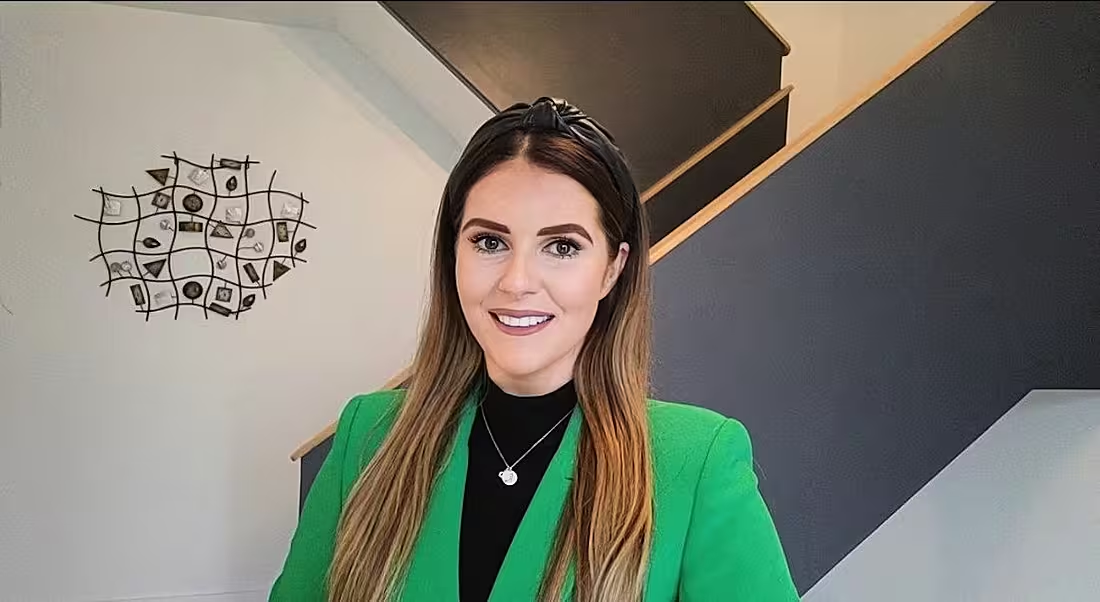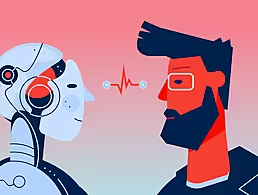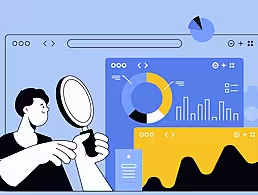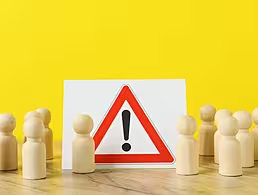Diligent’s Lorna Smyth shares her top productivity tips and explains why certain soft skills are so important in her role.
Lorna Smyth is a solutions engineer with Diligent, a US business that specialises in corporate governance software. In 2020, the company announced a new Galway hub, creating 200 jobs.
Smyth has more than 10 years’ experience in the technology industry, having worked for Hewlett-Packard, the government of Ontario, DXC Technology, Colgate-Palmolive and SmartBear.
If there is such a thing, can you describe a typical day in the job?
I have been recently starting my day with a gym session, followed by breakfast while listening to the morning news. I am not usually a morning person so incorporating the gym into my pre-work routine was a big challenge for me initially, but now that I’m doing it I absolutely love it. It goes to show that with practice and repetitiveness, a night owl can in fact become a 5:45am morning owl. A buddy to do it with helps too!
Once logged on, I look at my calendar to see what meetings I have for the day. I pay special attention to any client-facing meetings and double-check that I have done the required preparation to bring the most value to those meetings.
I then review my email and Slack messages and start making a to-do list for the day. I try to avoid responding immediately to messages once logging on as diving in without a plan can lead to hours spent on work that may not be a priority. It’s always good to take a step back, prioritise your to-do list and let that guide you.
As a solutions engineer at Diligent, my primary role is to provide our sales team with the technical support that enables them to close deals.
That typically means that my days are filled by supplying subject-matter expertise on our solutions and offering customised, value-led product demonstrations, preparing for demonstrations, environment set-up, meetings with salespeople, demo follow-ups, proof-of-concept preparation, answering technical questions, or attending product, marketing and team meetings.
I usually end my workday by making sure my admin is all up to date on Salesforce, and if there are any remaining tasks on my to-do list, I add them to the following day’s list.
What types of projects do you work on?
I spend a lot of time delivering value-led demonstrations of our software solutions to clients. Each client or opportunity can be considered a mini-project, and my role with my sales colleague is to actively listen, understand and document the client’s requirements. Once analysed, we develop a plan for the demonstration ensuring the focus reflects the client’s needs.
For each opportunity, everyone within the team has their own roles and responsibilities. For example, after the client outlines their requirements, the salesperson will focus on the commercial element of the deal, while the solutions engineer highlights the technical elements of our offering and how our solutions can help our clients face any issues. We all work towards set deadlines to get information across and demos delivered.
What skills do you use on a daily basis?
Some of the key skills I use on a daily basis are listening, presenting, communicating, objection handling, prioritisation, multitasking, empathy, storytelling, curiosity, organisation, problem-solving and teamwork.
Surprisingly, empathy is one of the most valuable skills a solutions engineer can possess. Before becoming a solutions engineer, I didn’t think I would be tapping into empathy as frequently as I do.
Empathy plays a huge part in delivering a successful demo and understanding exactly how your audience, the client or the sales team, feels. Being able to mirror that understanding back to them during the demonstration is an incredibly powerful asset.
What are the hardest parts of your working day, and how do you navigate them?
I think the hardest part of my day is finding uninterrupted focus time among the meetings, Slacks and emails. I may have allocated time to spend on a certain task when suddenly, I see a Slack notification that I think will take two seconds to reply to, and 20 minutes later I still haven’t returned to my task. It definitely makes the workday more varied!
Do you have any productivity tips that help you through the day?
To minimise any distractions, I have disabled my pop-up email notifications, and sometimes I also temporarily disable my Slack notifications or set my status to ‘do not disturb’.
Where possible, I’ll add items from my to-do list into 15 or 30 minute calendar appointments, to block-off my time so that my colleagues have visibility of my workload and avoid scheduling calls at those specified times.
While demoing or presenting my screen, I keep a pen and paper beside me to take notes and write any questions down, as this always helps me with preparation and ensuring that my bases are covered for the next demo.
I always try to respect my colleagues’ time when hosting meetings, doing my best to finish on time or excuse any colleagues who may need to leave at the specified time. I also respect my own time and when the specified meeting time is up, I will politely leave the call.
I’m a strong advocate for team bonding sessions and aim to schedule fun bi-weeklies that provide a forum where people can unwind, socialise and build trust. I always find that having a fun socialising session helps boost morale and productivity among us solutions engineers!
Looking after your mental and physical health is one of the best productivity strategies you can find! I try to take time for myself during the day to go for a walk outside at lunchtime to get fresh air and daylight in, which helps me to reset for the afternoon.
I stay hydrated by drinking one to two litres of water during my work day and try not to rely on coffee too much as sometimes I find the slump can be more counterproductive than the high.
What do you enjoy most about the job?
I’m a people person, so for me the best part about being a solutions engineer is I get to combine my technical capabilities and my customer-facing skillsets.
In the early days of my studies and career, I often felt like there was an unspoken rule that you had to be either ‘tech’ or ‘business’ focused. I didn’t know how to choose between the two areas and struggled to picture my future in tech, being pigeon-holed into one or the other.
When I discovered the world of presales and solutions engineering, I felt like I had found the sweet spot and was relieved that there was a place for someone like me in the tech industry.
I also enjoy the variety of the role – no two days are ever the same. We get to work with so many different clients who all have unique needs that we need to understand and address.
10 things you need to know direct to your inbox every weekday. Sign up for the Daily Brief, Silicon Republic’s digest of essential sci-tech news.




